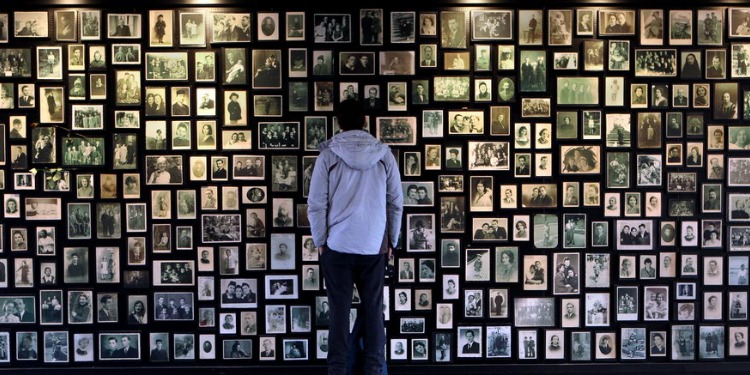Never Forget
The Fellowship | May 3, 2019

Let this be written for a future generation,
that a people not yet created may praise the Lord:
“The LORD looked down from his sanctuary on high,
from heaven he viewed the earth,
to hear the groans of the prisoners
and release those condemned to death.” — Psalm 102:18–20
On May 2, Jews in Israel and around the world marked Yom HaShoah, Holocaust Remembrance Day, honoring the six million Jews murdered at the hands of Nazi Germany. Throughout this week, I will share reflections from my father, the late Rabbi Yechiel Eckstein, on the importance for Christians and Jews to never forget and to continue the fight against anti-Semitism and persecution wherever it exists. — Yael Eckstein, Fellowship President,
It’s human nature to avoid talking about unpleasant topics. The more serious the topic, the more uncomfortable we feel in discussing it. When it comes to something as horrific as the Holocaust, we often are at a loss as to how to treat such an overwhelming and sensitive topic.
Indeed, there are those who invoke the Holocaust too frequently and those who do not talk of it enough; those who speak of it appropriately, and those who do so insensitively; those who wish to forget about the past and those who seek to learn from it; those who use the Holocaust to their own advantage, and those who are humbled by its magnitude.
When it comes to the Holocaust, it is essential that we never forget. All Jews today consider themselves as Holocaust survivors since Hitler’s plan was genocidal — to eradicate the entire Jewish nation. All Jews bear an awesome responsibility of telling the story of that painful and dark time in our history. We cannot allow history to repeat itself simply because we failed to convey the horrors to future generations. That’s why the stories of eyewitnesses are so important.
When one American doctor arrived at a concentration camp in Buchenwald, he walked through the barracks for the first time. He heard a voice and turning around, saw a “living skeleton” talking to him. A Jewish woman who was at Auschwitz said that whenever Allied planes flew overhead, she and the other Jewish prisoners prayed that they would bomb the gas chambers, “even if it meant we might be killed.” They were willing to give their lives to save others
We cannot afford to forget these stories and experiences — not for ourselves and not for our future generations. General Dwight D. Eisenhower made it a point to visit the Nazi death camps in Poland in April 1945 as the camps were liberated. He said, “I visited every nook and cranny of the camp because I felt it my duty to be in a position from then on to testify at firsthand about these things in case there ever grew up at home the belief or assumption that the stories of Nazi brutality were just propaganda.”
Eisenhower’s statement is featured prominently on the exterior wall of the U.S. Holocaust Memorial Museum in Washington, D.C., today: “The things I saw beggar description . . . the visual evident and the verbal testimony of starvation, cruelty and bestiality were so overpowering . . .”
It’s important to convey both history and moral value to future generations. That’s why God’s word reminds us and warns us to pass it on: “Only be careful, and watch yourselves closely so that you do not forget the things your eyes have seen or let them fade from your heart as long as you live. Teach them to your children and to their children after them” (Deuteronomy 4:9).
Consider what you can do today to remember the Holocaust and to pass on these stories to the next generation so that we will never forget.
